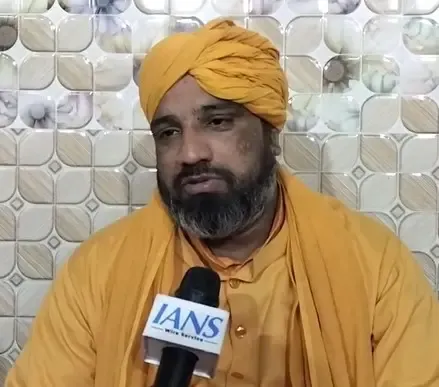Disregard Misinformation: Syed Naseruddin Chishty Urges Muslim Community to Trust Verified Information

Synopsis
Key Takeaways
- Syed Naseruddin Chishty urges the community to trust verified information.
- The Waqf (Amendment) Bill aims to prevent misuse of religious properties.
- Claims of property seizure are unfounded and misleading.
- The bill intends to benefit underprivileged Muslims.
- Official communications should be prioritized over rumors.
Ajmer, April 2 (NationPress) Syed Naseruddin Chishty, the Chairman of the All India Sufi Sajjadanashin Council, on Wednesday rejected assertions from certain Muslim organizations claiming that religious properties would be confiscated following the approval of the Waqf (Amendment) Bill. He urged individuals to refrain from accepting such claims, explaining that the bill aims to establish more stringent regulations to curb the exploitation of Waqf properties.
Chishty asserted that those who profit illegally from Waqf assets are the ones disseminating these misleading statements, as the new amendments would jeopardize their interests.
The Waqf (Amendment) Bill is scheduled for presentation in Parliament on Wednesday.
In response to this, Syed Naseruddin Chishty informed IANS, "This has been anticipated for a considerable time, and now the moment is at hand. Around noon, the Waqf (Amendment) Bill will be introduced in Parliament. I am hopeful for a constructive dialogue, resulting in the passage of a well-crafted bill that will rectify the flaws of the current Waqf Act."
Addressing the groups opposing the bill, he stated, "Everyone has the right to dissent in a democracy. However, many ordinary citizens may not fully comprehend the bill and thus accept whatever their leaders convey to them."
"While it is acceptable to oppose or endorse certain elements of a bill, to assert that mosques or other religious properties will be seized is entirely erroneous. I reject such disinformation and place my trust solely in the government's assertions. Others should similarly rely on official communications instead of unfounded rumors," he added.
He also highlighted that the bill's tougher provisions are designed for the benefit of impoverished Muslims.
"When laws become stringent, some individuals may take offense. This bill will enforce strict measures favoring underprivileged Muslims. The primary aim of Waqf has always been to guarantee that its properties serve religious and charitable purposes. Regrettably, this has not been the case thus far. It is hoped that with this new legislation, genuine benefits will be realized by the people," he concluded.







